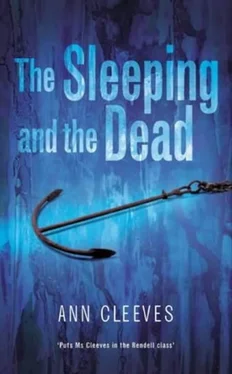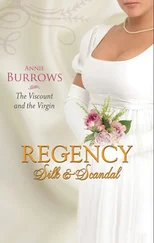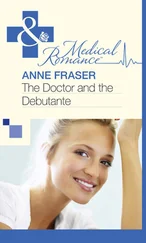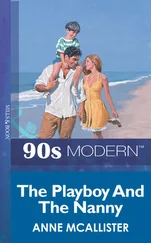The scene was lit suddenly by car headlights. They shone on the animals in the children’s playground behind its wire-mesh fence, a nightmare zoo.
He’s fetched his van to head me off, she thought. Then: I underestimated him. Not such a charvie after all.
She heard the engine revving and sensed it coming towards her, but blinded by the lights after the gloom of the flats she was paralysed. She couldn’t decide which way to run. At the last minute she twisted and started to move, but knew it was too late.
Then there was a shout. She felt the soft thud of another body, pain as she was thrown to the ground, winded and battered. Then came the movement of the vehicle past them, air on her face, and an enormous crash as it swung, out of control, into a wall.
Hannah sat by the living-room window, counting the cars go past, telling herself, When I’ve counted ten more, Arthur will arrive with Rosie. But Arthur didn’t arrive, so she counted twenty, then thirty, then fifty. She’d wanted to go with him to the estate by the river, Hunter’s last known address, but he’d said she’d be better there, next to the phone, and he’d suddenly seemed to inspire confidence so she’d done what she was told. When the car did stop she thought it was a mirage, her imagination playing tricks. But the first person she saw, the only one that mattered then, was Rosie, who got out of the back seat. And she looked dishevelled and shocked, her white work shirt stained. Too solid to be a dream.
Hannah ran to the door and held her. She felt herself crying and wiped her eyes on her sleeve, because Rosie always said she was soppy, that she cried at the drop of a hat. When she looked up she saw Porteous and Stout coming up the path. No one else was with them.
‘Where’s Arthur?’
‘They’ll explain,’ Rosie said. ‘Is there anything to eat?’
‘He’s in hospital,’ Porteous said.
‘Shouldn’t Rosie be too? For a check-up at least.’
‘Nah.’ Rosie shook her head and went to the kitchen to forage for food.
‘Is Arthur badly hurt?’
‘Serious but stable, they say.’
Like Marty, she thought.
Rosie wandered back in. She was drinking from the glass of wine Arthur had poured for himself earlier. In the other hand she held a slice of the cheesecake Hannah had finally decided on for pudding. Crumbs from the biscuit base were dribbling on to the floor. ‘Any phone calls?’ It was what she always asked. It was as if she’d only come back from a four-hour shift at the Prom.
She doesn’t want a fuss, Hannah thought. ‘Joe,’ she said. ‘Several times. He’s been frantic.’
‘I’d better phone him.’ She drifted away upstairs.
Hannah watched her then turned to Porteous. She wondered what he was still doing there, hovering just inside the door like a Jehovah’s Witness or a Kleeneze salesman. Shouldn’t he be taking statements?
‘Arthur is all right?’ she asked. ‘If it’s serious, perhaps I should go to the hospital.’
Then Porteous and Stout walked in, flanking her on each side, so she thought for a crazy minute that they intended to arrest her after all. They sat beside her on the sofa.
‘I don’t think you should do that,’ Porteous said. Hannah saw that both men looked exhausted, much worse than Rosie. He rubbed his eyes. ‘Arthur Lee’s under arrest. He’s been charged with the murders of Theo Randle, Melanie Gillespie and Alec Reeves. And the attempted murder of Rosie.’
‘No.’ Again Hannah thought she was going mad. ‘Rosie was abducted by a youth called Hunter. He phoned here for money. Arthur went to rescue her. I asked him to.’
‘Mr Lee’s just driven his car straight at her at fifty miles an hour,’ Stout said crossly, grumpy as an overtired boy. ‘If the boss hadn’t thrown your daughter out of the way she’d be dead.’
There was a silence. Porteous stood up. ‘I think this should wait. You’ll want to spend some time with your daughter.’
Hannah stood at the door and watched the policemen walk to their car. Through the ceiling she could hear Rosie’s voice chatting, almost naturally, to Joe. There was a burst of laughter, tension relieved. Suddenly Hannah felt angry. How could her daughter be so arrogant, so foolish, not to be scared, not to recognize how close she’d been to danger? But later, when Hannah was in bed, pretending to sleep, Rosie crept in beside her and they spent the rest of the night cuddled together and occasionally Rosie cried out.
Porteous invited her to Cranford to explain Arthur’s guilt. He was apologetic. He was so busy, he said, tying up loose ends. He didn’t think he could make it to Millhaven. Would she mind coming to him?
It was the evening of the following day and still the sun was shining. They met at the picnic site at Cranford Water. The press was still at the police station, Porteous said. And anyway she wouldn’t want to go there. They sat at one of the bench tables. A respectable, middle-aged couple taking the air. Porteous had brought an old-fashioned wicker shopping basket covered with a tea towel and fished out a bottle of wine and some smoked-salmon sandwiches. There were real glasses, linen napkins. Hannah wondered if this were another apology. I’m sorry I thought you were a murderer.
‘How’s Arthur?’ she asked, wanting to start them off. Really rather hoping he was dead.
‘Well enough to talk. Just. Did you know he’d worked as a psychologist at a centre for disturbed children called Redwood?’
She shook her head. ‘He didn’t talk much about the past. I knew he’d done research into families. The causes of delinquent behaviour. I don’t think he ever said where he was based.’
‘He was there for years. Almost since the place started. He went on to run training courses for other professionals, but he kept his links with the centre. He was a leader in his field. That’s why the Home Office headhunted him for Stavely when Redwood closed down.’ Porteous stretched back and closed his eyes against the sun. ‘It started with Theo Randle, the boy you knew as Michael Grey. His mum died of cancer and his dad remarried. There was a little girl. Emily. You know all that. Arthur told you, didn’t he? Once he knew we’d find out anyway. Theo’s stepmother suffered from severe post-natal depression. His father started drinking heavily. The family was falling apart. A suitable case for Mr Lee’s research. Theo hated Emily. She was only months old but he hated her. If she’d never been born he thought they might be happy. It would have been like before his mother died. So he decided to do something about it. He started a fire in the nursery when the nanny had a night off. Emily was killed.
‘Afterwards he was probably sorry. He went to his father and told him what he’d done. But his father didn’t go to the police. He was a public figure. His wife was already suffering from depression. Imagine what the press would make of it. A boy that age charged with murder. Yet he couldn’t face living with Theo either.
‘Redwood hadn’t long opened and was desperately short of money. There was a possibility that the place would shut before Alice Cornish had a chance to prove her ideas. Crispin Randle made a generous donation and Arthur accepted care of the boy. He probably saw it as a professional challenge. He promised he wouldn’t tell the authorities that Theo had killed his sister and agreed to the change of name.’
‘Was that wrong?’ Hannah asked. ‘Would Michael have been better off in a secure unit? A prison?’
‘He would have been safe there,’ Porteous said. ‘And he wouldn’t be a danger to other people.’ He paused. ‘There was another incident of arson. This time at Theo’s school. He started the fire there too. Apparently he hated the place. Arson was his answer to difficult situations. His way of hitting out. Arthur provided an alibi for him. He didn’t want people making awkward connections. Again Alice Cornish never knew. Soon after, the time came when Theo had to move on. He couldn’t be protected in Redwood for ever and Arthur couldn’t let on that he might still be a risk. Alec Reeves, a care worker at Redwood, knew the Brices. They agreed that he could live with them.’
Читать дальше












